The fate of no single country has been more inexorably tied to Miami than that of Cuba.
More than a million exiles fled the island nation to Miami throughout the decades-long rule of communist dictator Fidel Castro, spreading their influence in all facets of the city’s economy. They bought homes, built communities and helped grow Miami’s then-fledgling skyline.
Now, in the wake of Castro’s death, some of Miami real estate’s biggest Cuban-American names are reflecting on Cuba’s future, the impact on U.S.-Cuba relations and — naturally — how it all affects real estate.
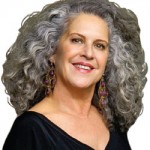
Esther Percal
Esther Percal
Esther Percal was born in Cuba, and left for Miami Beach in 1961 when she was six years old. She told The Real Deal that she wished her father were alive today so that she could share the news that Castro died.
She doesn’t believe there will be any sudden changes. “The impact has already been happening slowly….” said Percal, senior vice president at EWM International Realty. “Little by little they have opened the gates” to joint venture businesses, though she believes Raul Castro “is still keeping the country under a tight grip, because at the end of the day, they have stolen a country, or taken possession of it, along with the people.”
“My hope would be that tomorrow I can go buy property,” Percal added. “I would go get myself a beautiful house or apartment somewhere and hang out in Cuba.” She said she would set up a beach chair and umbrella and a manual typewriter and sit there and call her friends.
“I wish it would change, but I don’t see it changing right away,” she said. “In order to keep their power they have to make some changes.”
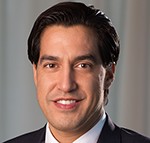
Andres Asion
Andres Asion
“I think that many people in the United States are looking to tee up the ability of when they are going to business with Cuba,” Andres Asion, founder of Miami Real Estate Group, said. Asion, who’s close with Versailles and La Carreta owners the Valls family, was on Calle Ocho celebrating the news all last weekend.
He echoed statements that Castro’s death won’t lead to new business, especially not right away.
Asion said a change in government and economic/political openness would affect the second-home market for South Floridians. “I think it’s going to affect more the Bahamas than Miami,” he told TRD. “I would definitely go and buy a home in Cuba and spend my weekends there than buy a home in the Bahamas.”

Mayi de la Vega
Mayi de la Vega
Mayi de la Vega, founder and CEO of One Sotheby’s International Realty, was born in Cuba and left when she was very young. Though she doesn’t remember her homeland, she said she has read much about the Cuban Revolution. “I really feel pain for the country for the atrocities that have been committed there.”
De la Vega said she doesn’t foresee immediate changes in Cuba or any impact on the real estate market in the short term. “As we all know, Cuba has an oppressive political system and Fidel planned [to bring in] his brother Raul to ensure that they would continue with his philosophies,” de la Vega told TRD.
“It’s a happy time for all the Cuban refugees who fled their country to seek freedom,” she added. “And I think we are all celebrating his passing and hope for a free Cuba which is really what we need, a free Cuba.”
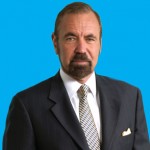
Related Group CEO Jorge Perez
Jorge Perez
Jorge Perez, the chairman and CEO of the Related Group, noted that Castro has not had power in recent years, with his brother Raul Castro and the military maintaining control of the country. “Raul seems to be more willing to promote an opening of relations between Cuba and the U.S., but it seems that every time a forward step is taken, more restrictions seem to be applied,” Perez said via email.
“The high hopes from Obama’s visit have not materialized in either increased freedoms or trade,” he said. “With the collapse of the Venezuelan economy, I would have thought that Cuba would have moved to open the economy to foreign investments, particularly from the U.S. This has not happened in any meaningful way.”

Sergio Pino
Sergio Pino
Though most would agree Castro’s death won’t have a real, immediate effect on the island’s governance, one thing is certain: Once Cuba’s doors open, there will be opportunities abound for home builders.
Sergio Pino and his company Century Homebuilders are eagerly awaiting that day, he told TRD.
A 2008 study from Florida International University that Pino co-sponsored along with Lennar Homes found Cuba has a need for more than 1 million housing units, Pino said, not including decaying properties that must be either renovated or replaced.
“The only thing that’s been built in Cuba for the last 40 or 50 years is expensive resorts for tourists,” he said. “There’s been nothing built for the Cuban people.”
Real estate investment in Cuba has so far been out of reach, as the U.S. embargo precludes stateside companies from owning real estate on the island. That’s left many Miami developers — from the Related Group to Pino’s Century Homebuilders — waiting on the sidelines for relations between the countries to thaw.
If Cuba does shift to a more capitalist system, the initial wave of residential development would likely be geared toward low-end homes and rental projects, Pino said, as many residents of the island wouldn’t yet have the wealth to buy a home.
But as investment dollars flow to Cuba and jobs are created, the market for middle and higher-end homes would follow. Second homes would also be big business, he said, as many Cuban-Americans would be interested in owning residences both in the U.S. and Cuba.
Pino admitted that, for now, his business plans for Cuba are a dream. But with commercial flights to the island resuming and the corresponding boon to tourism, he hopes a taste of capitalism will help oust Castro’s communist legacy. Much will hinge on President-elect Donald Trump’s foreign policies, and whether he will continue President Barack Obama’s attempts to open relations with the island.
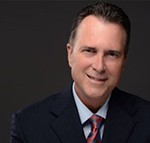
Jose Juncadella
Jose Juncadella
Jose Juncadella, principal at Fairchild Partners, said the future of Cuba’s economy will depend a lot on Miami. The communist country’s need for infrastructure and equipment could be a boon for Miami.
Miami’s industrial market stands to benefit, the Cuban-born commercial and industrial broker said. “Cuba is a very, very poor country so it may have an influx of economic donations from the U.S.,” he told TRD. “For them to buy our products, I don’t think it’s going to happen.”
The Cuban Revolution had a huge impact on the psyche of wealthy Latin Americans and their subsequent investment in the U.S., Juncadella said. Wealthy investors in politically unstable Latin American countries use what happened to the Cuban people, his parents included, as a reason to invest elsewhere.
What happened in Cuba “fueled a tremendous amount of investment” in Miami and the United States. “They invest here. They feel safe here.”
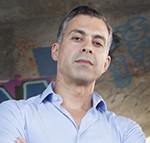
Eloy Carmenate
Eloy Carmenate
Douglas Elliman’s heavy hitting broker Eloy Carmenate agreed that, practically, Castro’s death meant little for the real estate market here or in Cuba.
But the communist leader’s passing signified much more to Miami’s Cuban community than the death of a hated dictator. For many, Carmenate said, the news last weekend prompted a sign of relief. Castro’s nearly 50-year grip over the island was pockmarked with executions, poverty and the imprisonment of political dissidents, all of which pressured millions to flee Cuba over the decades.
Carmenate is himself an American-born son of two Cuban migrants who left the island in 1962, a year after Castro’s forces crushed a small army of exiles who sought to overthrow the regime in the now-notorious Bay of Pigs Invasion.
Other members of his family weren’t as lucky, he said. Some were imprisoned, others were killed.
While swarms of Cuban-Americans took to the streets last weekend in the wake of Castro’s death, banging their pots and pans in happiness, Carmenate visited his mother in her senior home in Hialeah to celebrate.
Even though Castro’s death means some wounds now have a chance to heal, Carmenate said he won’t visit Cuba until the island’s government undergoes serious reforms.
“Until I know they’ve stopped violating Cubans’ fundamental rights, I refuse to put a penny in that regime’s pocket,” he told TRD.

Alicia Cervera
Alicia Cervera Lamadrid
Alicia Cervera Lamadrid is adamant about little changing in South Florida or Cuba as a result of Castro’s death, but remains hopeful for the Cuban people. Cervera, managing partner and principal of Cervera Real Estate, said she’s extremely interested in eventually owning a second home in Cuba.
But for now, she says little came to fruition with regards to human, civil and fiscal rights following the opening of ties between the U.S. and her home country earlier this year.
“The government is the same, the policies are the same and there is very little assurance that there’s going to be anything different,” she told TRD, later adding that “developers have had their eyes on Cuba for as long as I’ve been in the business. It’s not a question of desire.”
